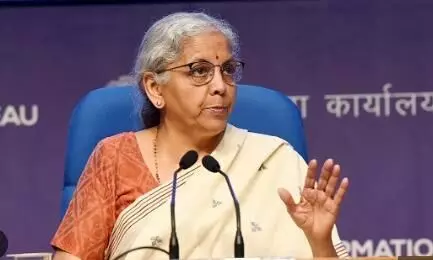
UP gets lion share of Centre’s tax devolution ahead of festival season
text_fieldsNew Delhi: The Centre on Thursday released Rs 31,962 crore to Uttar Pradesh in tax devolution, which forms major chunk of the total Rs 1,78,173 crore allocated to the states as their share in the divisible pool of central taxes and duties, The News Minute reported.
Yogi administration will get the highest allocation, where five southern states – Karnataka, Kerala, Tamil Nadu, Telangana and Andhra Pradesh—together will draw Rs 28,152 crore.
This disbursement for states included the regular instalment for October alongside the advance instalment of Rs 89,086.50 crore for November.
The Ministry of Finance stated that the advance is allocated for boosting capital spending, managing development and welfare programmes in view of the festive season.
Andhra Pradesh will get Rs 7,211 crore, Karnataka Rs 6,498 crore, Kerala Rs 3,430 crore, Tamil Nadu Rs 7,268 crore, and Telangana Rs 3,745 crore.
It is reported that where Uttar Pradesh received 17.9% of total funds, the five southern states together got only 15.8%.
Marking a significant difference between northern and southern states in sharing tax devolution, Bihar received Rs 17,921 crore, Madhya Pradesh Rs 13,987 crore, and West Bengal Rs 13,404 crore.
The tax-sharing formula is decided by the Finance Commission based on terms of reference set by the Union government, according to the report.
The tax sharing formula that the 13th Finance Commission (up to 2010) used was based on population data from the 1971 census, while the the 14th Finance Commission began using both the 1971 and 2011 census data.
Now the the 15th Finance Commission uses the 2011 census, which according to the report, benefits states with higher population growth, such as Bihar, Jharkhand, and Uttar Pradesh.
However, the state in the south, known for better population control, gets smaller share of the taxes.
The southern states have frequently raised the matter and the Karnataka government earlier this year launched a ‘South tax movement’ saying that the Southern states get a smaller share in the distribution of tax revenue.























